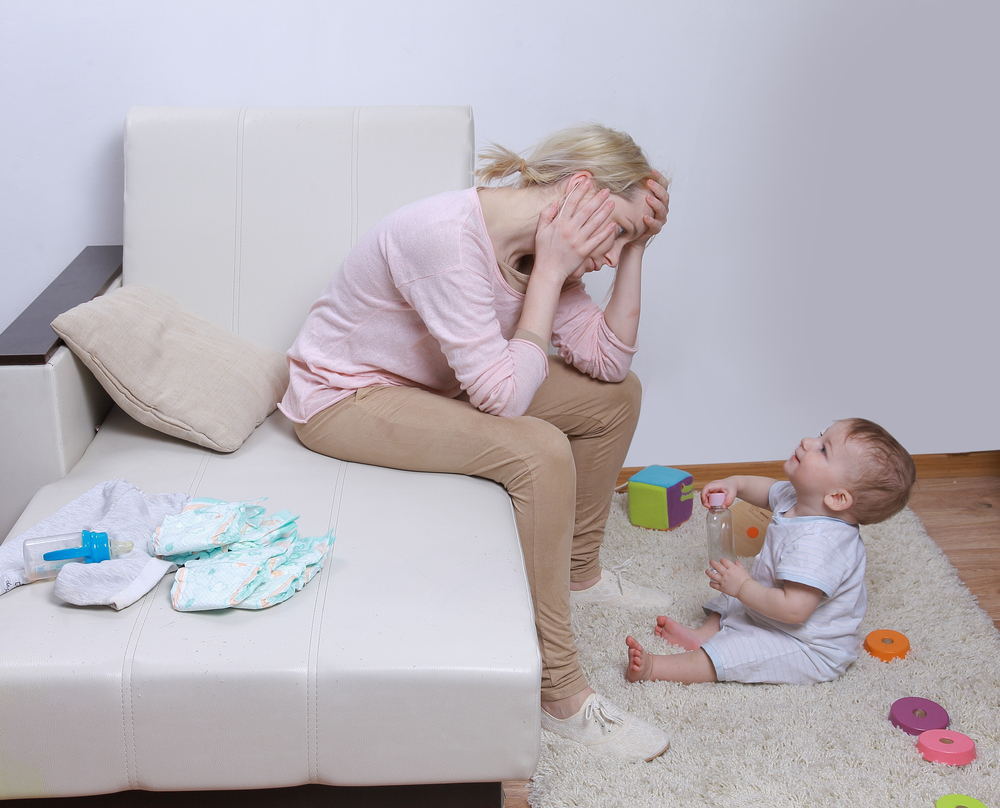5 Major Risk Factors Of Postpartum Depression
Some women suffer from a serious mood disorder after childbirth. This disorder is termed as postpartum depression (PDP) that often occurs within 4 weeks after childbirth. Women who go through postpartum depression experience extreme feelings of sadness, depression, anxiety, and exhaustion, hindering their ability to nurture their newborn child. Postpartum depression is less recognized and treated, and hence, obstetricians and pediatricians can serve significant roles in screening and treating the same.
Since postpartum depression affects different women in different ways, doctors are unable to find one unique cause. In fact, doctors believe that there can be multiple causes and risk factors that lead to the condition of postpartum depression in women.

Psychological factors
Many studies have linked postpartum depression to the onset of depression. Therefore, it can be concluded that women who have a history of depression and anxiety are at a higher risk of postpartum depression.
Abuse can be another leading cause or risk factor of postpartum depression. Any kind of abuse during pregnancy or years before pregnancy increases a woman’s chances of going through this depression. Furthermore, a woman’s or her family’s reluctance of the baby’s gender can cause postpartum depression. In addition to this, women with low-self esteem, when faced with the impact of parenting stress, can suffer from postpartum depression.
Childbirth-related factors
Some studies have found that the prevalence of postpartum depression is more in multiparous —women—who have borne more than one child — than in nulliparous women — who have never given birth. However, there are also studies that found the opposite; where the risk of postpartum depression is more prevalent in nulliparous women than in multiparous women. These discrepancies in various studies indicate that the number of childbirth alone cannot be the independent factor for causing postpartum depression.
There has also been an association between high-risk pregnancy and an increased risk of postpartum depression. In high-risk pregnancy, the mother and her fetus are at a great risk of health complications due to health problems in the woman before and during pregnancy. There are different types of risks in pregnancy that include preeclampsia, diabetes, teen pregnancy, preterm labor, conditions leading to an emergency C-section and more. Additionally, in some cases, postpartum complications, such as umbilical cord prolapse and obstetric hemorrhages, cause postpartum depression.
Biological factors
Pregnancy at a young age can lead to postpartum depression. Most cases of postpartum depression have been reported in teenage mothers. However, women in increasing maternal age with maternal self-efficacy are often found to have reduced risk of developing postpartum depression.
Another predisposing factor of postpartum depression is the disorders in glucose metabolism. That being said, women who have higher blood glucose levels are more at risk of this depression. Insufficient serotonin and tryptophan levels in the blood also lead to the depression. Serotonin is a neurotransmitter that, when released, makes a person happy and energetic. Tryptophan is an amino acid that plays an important role in balancing nitrogen in adults and promotes growth in infants. Certain foods rich in protein reduce the amount of tryptophan and serotonin in the brain and consumption of carbohydrates reverses this effect. Therefore, decrease in tryptophan and serotonin due to nutritional deficiencies can cause postpartum depression.
Social factors
Social support during pregnancy is important for the mother and child. Emotional support and empathy relations come under social support. A mother with a strong support system is less likely to suffer from postpartum depression.
Employment status is another social factor that is associated with postpartum depression. Women who hold employment, especially professional careers, are at a reduced risk of postpartum depression.
Lifestyle factors
An unhealthy diet, irregular sleeping patterns, and lack of physical activities are some lifestyle factors that affect a woman’s likelihood of developing postpartum depression. Women who follow a healthy diet that includes vegetables, fruits, legumes, milk, and seafood lowers her risk of postpartum depression.
Along with the healthy diet, a healthy sleeping pattern also helps in reducing the risk. Therefore, women who are sleep deprived after delivery can have a negative impact on their metabolism, inflammatory processes, mental health, and quality of life. This further leads to postpartum depression.
Additionally, women who perform regular exercise and physical activity can reduce their chances of getting postpartum depression.

